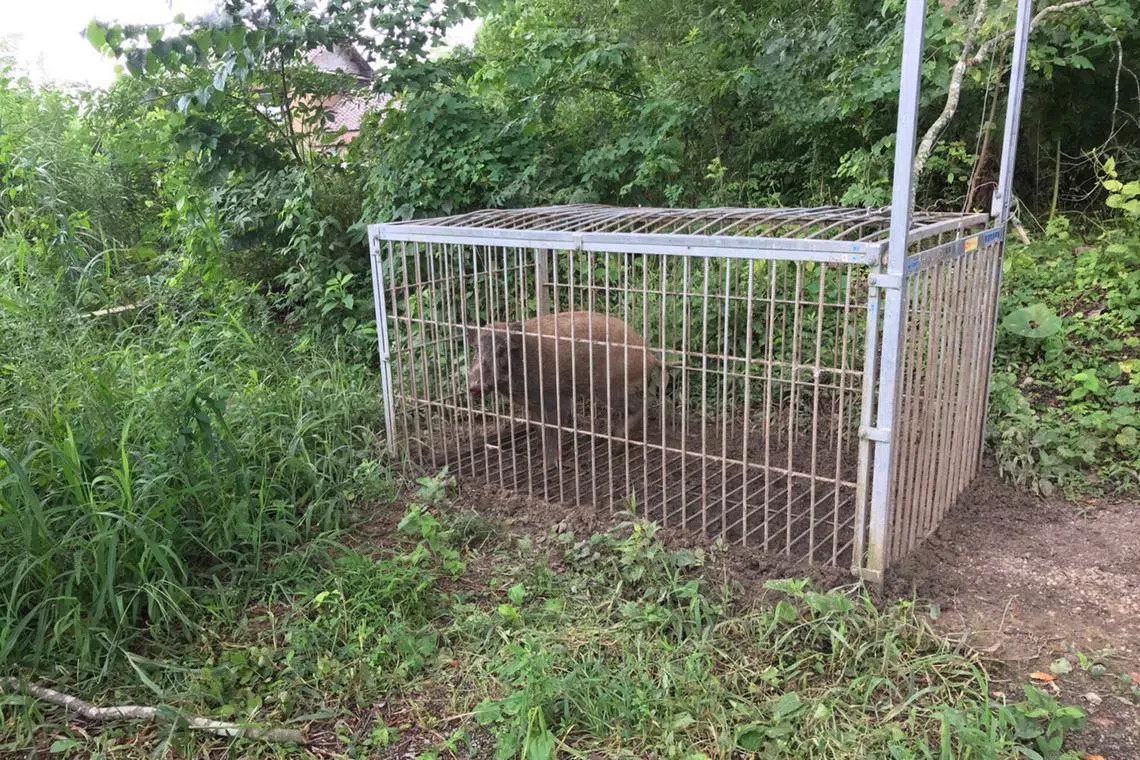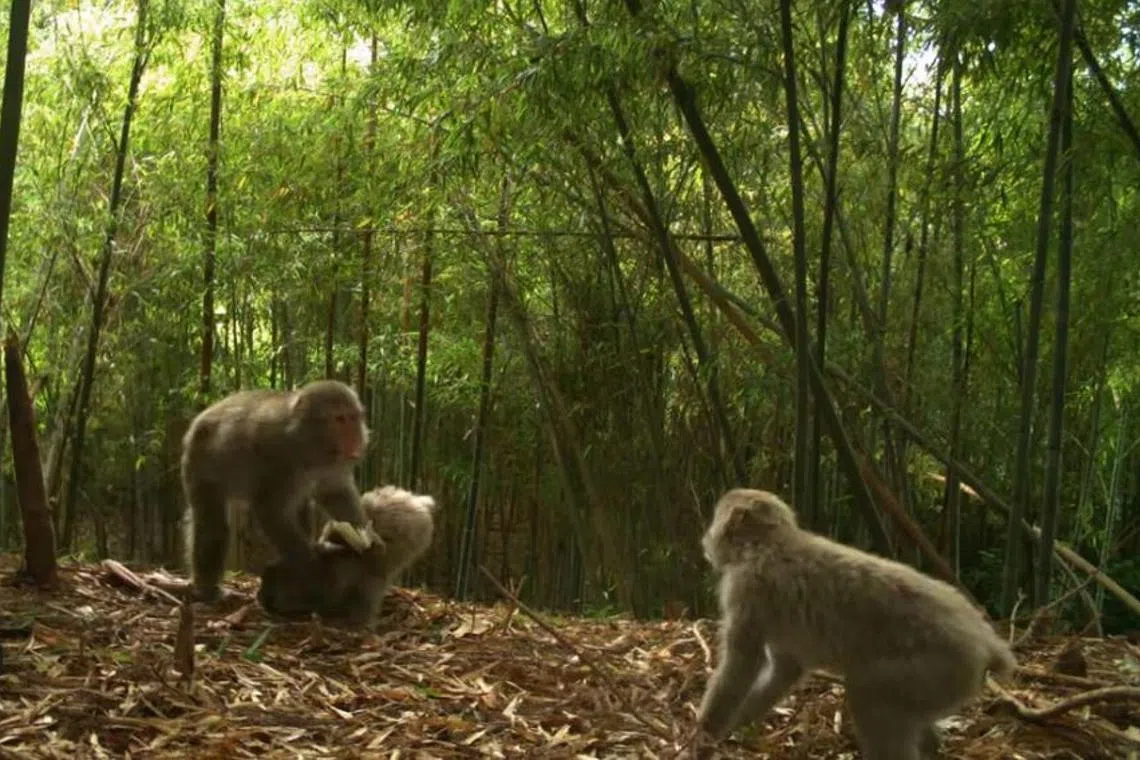Flourishing wildlife makes Fukushima a natural laboratory to study the impact of radiation
Sign up now: Get insights on Asia's fast-moving developments

Depopulated areas with little human activity has essentially expanded the natural environment for wildlife.
PHOTO: COURTESY OF MOTOKO MORIMOTO
Follow topic:
TOKYO – The decline in human population in the hardest-hit areas of the Fukushima nuclear disaster has had an unintended consequence: the rewilding of nature.
The affected area, flanked by the Abukuma Highlands to the west and the Pacific Ocean to the east, has become a natural laboratory to study the colonisation by wildlife and the impact of radiation exposure on the animals living amid low-radiation exposure.
Residents were forced to evacuate the area after the triple meltdowns at the Fukushima Daiichi nuclear plant
However, with the progress of decontamination, the exclusion zone that is off limits to residents has shrunk from 12 per cent of the overall prefecture land area to 2.3 per cent today.
But the desolate and depopulated areas with little human activity and overrun with wild vegetation have essentially expanded the natural environment for wildlife, experts say.
The Japanese authorities had sought to cull these creatures out of fear that they might spread radioactive particles.
But scientists argue that studies of these animals – much like the research into the free-ranging dogs of Chernobyl, the site of a nuclear accident in 1986 – can assist in understanding how the human body and immune system will respond to similar stress.
Miyagi University professor Motoko Morimoto, who has studied the impact on wild boars in the region, told The Straits Times of her surprise that persistent exposure to low-radiation doses did not cause any distinctive abnormalities in the animals.
While there was some observable immune response, the wild boars she studied were not only healthy, but also thriving in the human-free habitat.
Dr Morimoto told ST that the key is to observe longer-term impact, but she fears that research funding might be cut since this is an area that Japan does not seem keen on.
“In the interest of science and understanding of the health effects of radiation exposure to humans, the monitoring of the biological effects of radiation exposure should continue,” she said, expressing awe at nature’s ability to adapt.
Her findings mirror those of Dr Manabu Fukumoto of Tohoku University, who studied the lungs, liver, thyroid glands and muscle tissue of macaques and found no major pathological impact from radiation.
Meanwhile, Dr Koji Yamazaki of Tokyo University of Agriculture found curious migration patterns of animals. He noted how species such as wild boars, monkeys and Japanese serows (goat-antelopes) have ventured well beyond their native Abukuma Highlands to inhabit areas around the Pacific coast.
“Before I started my research, I imagined that wild animals in mountainous areas had not yet reached the coastline, or that even if they did, the population density was low,” he told ST.
“In reality, however, wild animals were advancing to the coastal areas at a speed that exceeded expectations. Their adaptability to the environment was excellent.”

Wildlife is flourishing in Fukushima after residents were forced to evacuate following the triple meltdowns of the Fukushima Daiichi nuclear plant on March 11, 2011.
PHOTO: SCREENGRAB FROM UNIVERSITY OF GEORGIA/YOUTUBE
He also observed other curious trends, like the inland migration of species alien to mountainous areas, such as raccoons and palm civets. A species of the endangered Asian black bear native to neighbouring Niigata prefecture has also been found in the Abukuma Highlands.
Dr Yamazaki pointed out that residents returning to areas where evacuation orders have been lifted will find that they must coexist with new neighbours.
“Farming has resumed,” he said.
“But if the current migration trends of animals continue, there will be damage to agriculture and forests, while sanitation issues related to wild animals may be expected,” he added. “It may be difficult to obtain an environment where people can live with peace of mind.”


